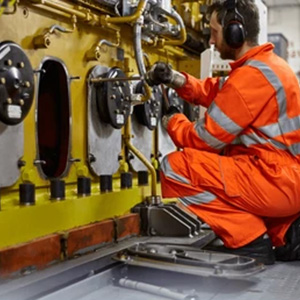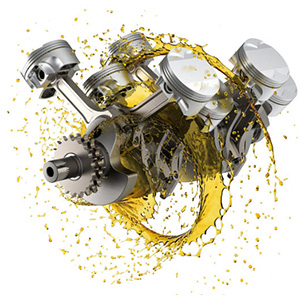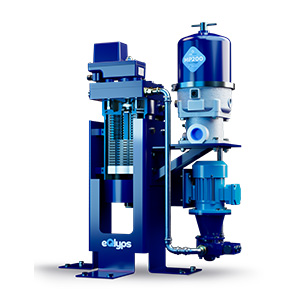Engine Oil Filtration System
 Every engine, whether powering a family car, a marine vessel, a power plant, or a piece of heavy industrial machinery, relies on one fundamental truth: clean oil is the lifeblood of mechanical performance. Just as blood carries nutrients and oxygen throughout the human body, engine oil circulates through vital components, lubricating, cooling, and protecting them from wear. Without clean, contaminant-free oil, even the most advanced engines suffer premature wear, reduced efficiency, and costly downtime. This is where the importance of an advanced engine oil filtration system becomes clear.
Every engine, whether powering a family car, a marine vessel, a power plant, or a piece of heavy industrial machinery, relies on one fundamental truth: clean oil is the lifeblood of mechanical performance. Just as blood carries nutrients and oxygen throughout the human body, engine oil circulates through vital components, lubricating, cooling, and protecting them from wear. Without clean, contaminant-free oil, even the most advanced engines suffer premature wear, reduced efficiency, and costly downtime. This is where the importance of an advanced engine oil filtration system becomes clear.
At its core, an engine oil filtration system is designed to remove impurities such as soot, carbon, metal particles, and sludge that naturally accumulate as engines operate. These contaminants, if left unchecked, cause abrasive wear, clog narrow oil passages, and accelerate the breakdown of lubricants. Traditional oil filters, most commonly disposable paper or synthetic full-flow oil filters, provide a first line of defense by trapping larger particles. However, conventional filtration alone often struggles to capture the finer contaminants that cause the most damage over time, particularly in industries where engines must operate reliably under extreme conditions, such as maritime, natural gas compression, power generation, and heavy transportation.
Oil Filtration technology that goes beyond the basics is not only desirable but also essential.
This demand for innovation has given rise to companies dedicated to redefining oil cleanliness standards, and among them, IOW Group has established itself as a global leader. With decades of expertise in engineering high-performance oil filtration solutions, IOW Group stands at the forefront of oil filtration technologies that protect engines, extend oil life, and reduce environmental waste. The company’s flagship products, its centrifuge oil filter systems and the advanced eQlyps full flow oil filtration units, set new benchmarks in efficiency and sustainability. Unlike traditional filters that rely solely on replaceable media, IOW Group’s solutions are engineered for long-term reliability, cost-effectiveness, and maximum particle removal, even at microscopic levels.
The significance of adopting the right engine oil filtration system cannot be overstated. Engines are increasingly designed with tighter tolerances, higher operating pressures, and greater efficiency demands, which means that even the smallest contaminant can cause disproportionate damage. For operators managing fleets of commercial trucks, marine engines crossing oceans, or power plants running continuously, the cost of an engine failure is not measured only in repair bills but in lost productivity, environmental compliance penalties, and reputational harm. In these high-stakes environments, investing in better oil filtration technology that ensures oil remains consistently clean is both a technical and economic necessity.
What is an Engine Oil Filtration System?
An engine oil filtration system is a critical component in any internal combustion engine, designed to remove contaminants from lubricating oil and ensure smooth, reliable operation. As engines run, microscopic particles such as soot, carbon, metal shavings, and sludge are generated through combustion and mechanical wear. If left unfiltered, these solid contaminants circulate through the system, accelerating wear, blocking vital oil passages, and reducing both efficiency and lifespan. The primary purpose of an oil filtration system is therefore twofold: to protect engine components from abrasive damage and to maintain optimal lubrication, ensuring engines operate at peak performance for extended periods.
There are several types of engine oil filtration systems, each with distinct designs and applications:
-
- Full-Flow Filters (Traditional) – These are the most common oil filters (disposable filter media or self-cleaning filter type) used with industrial engines. Positioned directly in the main oil circuit, they filter all of the engine’s oil flow before it reaches critical components. While full-flow filters are effective for capturing larger particles, their media is limited in its ability to trap ultra-fine contaminants without restricting oil flow.
- Media Bypass Filters – Installed as an external circuit to the main oil system, media bypass oil filters continuously draw a small portion of lube oil from the reservoir, clean it at a much finer oil filtration level, and return it to the system. This method excels at removing fine particles. As a result, offline filtration systems (secondary oil filter) are used as a complementary solution to full-flow filters, providing an additional layer of protection and extending the life of the oil and its components.
- Centrifuge Bypass Filters – Unlike conventional oil bypass filters that rely on disposable media, centrifuge systems use centrifugal force to spin contaminants out of the oil. Capable of removing extremely fine particles, including those as small as one-tenth of a micron, centrifuge bypass filters provide continuous, high-efficiency cleaning without clogging or requiring frequent replacements. This makes them ideal for demanding industrial, marine, and power generation applications where engine reliability is paramount.
In short, while all systems serve the same fundamental purpose of keeping oil clean, their efficiency and applications vary significantly. Modern operators increasingly recognize that the most effective engine oil filtration system often combines full-flow protection with advanced centrifuge technology, ensuring both immediate safety and long-term cleanliness.
Why Effective Oil Filtration Matters?
 A high-performance engine oil filtration system is crucial for protecting engines, extending their lifespan, and maintaining optimal performance. Oil contaminants such as soot, metal particles, water, and sludge naturally accumulate during engine operation, acting as abrasive agents on precision components like bearings, pistons, and camshafts. By efficiently removing these oil impurities, an advanced oil filtration system ensures consistent lubrication, reduces friction, and helps maintain optimal operating temperatures. This results in smoother engine operation, improved fuel efficiency, and a significantly extended service life.
A high-performance engine oil filtration system is crucial for protecting engines, extending their lifespan, and maintaining optimal performance. Oil contaminants such as soot, metal particles, water, and sludge naturally accumulate during engine operation, acting as abrasive agents on precision components like bearings, pistons, and camshafts. By efficiently removing these oil impurities, an advanced oil filtration system ensures consistent lubrication, reduces friction, and helps maintain optimal operating temperatures. This results in smoother engine operation, improved fuel efficiency, and a significantly extended service life.
Beyond engine protection, effective oil filtration contributes directly to reduced maintenance costs. Engines operating with cleaner oil require fewer unscheduled repairs and allow for extended oil drain intervals. For industries relying on heavy machinery, marine engines, commercial transportation, and power generation equipment, minimizing downtime is crucial, as unexpected failures can result in substantial operational and financial losses. Advanced engine oil filtration systems also help reduce oil waste, supporting environmental compliance and sustainability initiatives by minimizing the volume of contaminated oil that requires disposal.
Common Problems with Conventional Oil Filters
Conventional oil filters, particularly standard full-flow filters, face inherent limitations that can compromise engine protection. Filter clogging is a common issue: as debris accumulates, oil flow may be restricted, resulting in reduced lubrication efficiency or bypass of unfiltered oil. Additionally, traditional filters often provide incomplete removal of fine contaminated particles, allowing small micron-sized contaminants to circulate and accelerate engine wear. Over time, this reduces engine efficiency and increases the likelihood of costly repairs.
Another challenge is pressure drop in full-flow filters. When filters reach saturation or are not designed for heavy-duty applications, oil flow can decrease, resulting in diminished lubrication and triggering bypass systems that allow unfiltered oil to circulate. These limitations highlight the critical role of advanced filtration technologies. Modern engine oil filtration systems, such as centrifuge filters and optimized self-cleaning full-flow solutions, overcome these challenges by ensuring continuous oil flow, capturing ultra-fine particles, and reducing the operational risks associated with conventional filters.
Why IOW Group Offers the Best Engine Oil Filtration System?
 IOW Group addresses these challenges by combining engineering precision with a deep understanding of real-world operating conditions. The company’s centrifuge oil filter, for example, uses centrifugal force to separate particulate contaminants from oil without the need for consumable filter elements. This innovation not only removes ultra-fine particles that traditional filters miss but also eliminates the ongoing cost and waste associated with disposable oil filters. Meanwhile, the eQlyps full-flow filtration system complements this approach by ensuring uninterrupted oil flow, preventing clogging, and maintaining optimum engine lubrication under the harshest conditions. Together, these systems provide a holistic solution, one that maximizes engine protection, minimizes downtime, and supports sustainability goals.
IOW Group addresses these challenges by combining engineering precision with a deep understanding of real-world operating conditions. The company’s centrifuge oil filter, for example, uses centrifugal force to separate particulate contaminants from oil without the need for consumable filter elements. This innovation not only removes ultra-fine particles that traditional filters miss but also eliminates the ongoing cost and waste associated with disposable oil filters. Meanwhile, the eQlyps full-flow filtration system complements this approach by ensuring uninterrupted oil flow, preventing clogging, and maintaining optimum engine lubrication under the harshest conditions. Together, these systems provide a holistic solution, one that maximizes engine protection, minimizes downtime, and supports sustainability goals.
Beyond technical superiority, what sets IOW Group apart is its commitment to helping industries achieve long-term operational resilience. By reducing oil contamination, IOW Group’s filtration systems extend oil change intervals, lower maintenance costs, and reduce environmental waste from used filters and oil disposal. This aligns with the growing emphasis on sustainable operations across industries, where companies are under increasing pressure to reduce carbon footprints and operate responsibly. IOW Group’s innovations directly contribute to these goals by offering systems that are not only highly effective but also environmentally responsible.
A Better Engine Oil Filtration System is the Answer!
Centrifuge Oil Filter
 The IOW Group centrifuge oil filter represents a leap forward in bypass oil filtration efficiency, leveraging the physics of centrifugal force (g-force) to remove solid contaminants from engine oil. Unlike conventional bypass oil filters that rely on physical media to trap particles, a centrifuge filter spins oil at high velocity, generating centrifugal forces that separate solid impurities based on density. Heavier particles, including soot, dirt, ash, silica, metallic wear debris, and sludge, are thrown outward against the centrifuge bowl wall (rotor wall), while the clean, lighter oil returns to the engine. This process occurs continuously as the engine operates, providing a level of oil cleanliness that traditional filters cannot efficiently match.
The IOW Group centrifuge oil filter represents a leap forward in bypass oil filtration efficiency, leveraging the physics of centrifugal force (g-force) to remove solid contaminants from engine oil. Unlike conventional bypass oil filters that rely on physical media to trap particles, a centrifuge filter spins oil at high velocity, generating centrifugal forces that separate solid impurities based on density. Heavier particles, including soot, dirt, ash, silica, metallic wear debris, and sludge, are thrown outward against the centrifuge bowl wall (rotor wall), while the clean, lighter oil returns to the engine. This process occurs continuously as the engine operates, providing a level of oil cleanliness that traditional filters cannot efficiently match.
One of the most significant advantages of the centrifuge oil filter is its ability to capture ultra-fine particles, often smaller than one micron, which are typically responsible for accelerated engine wear and lubricant oil degradation. By removing these microscopic contaminants, the system minimizes abrasive damage to critical components, maintaining precise tolerances and extending overall engine lifespan. Importantly, the centrifuge bypass oil filter achieves this without consumable filter elements. This design eliminates recurring replacement costs and reduces waste, making it both economically and environmentally advantageous.
The continuous, high-efficiency operation of the centrifuge filter ensures that oil remains consistently clean even in the most demanding conditions. Engines operating in marine vessels, power plants, natural gas compression, or heavy industrial machinery frequently encounter high thermal loads, soot accumulation, and particulate contamination. In such environments, traditional bypass oil filters can quickly become saturated or fail to capture debris 35-40 microns and below. IOW Group’s centrifuge technology addresses these challenges directly, providing uninterrupted protection that allows engines to perform reliably over long oil change intervals, even under extreme stress.
What company centrifuge is best?
The best centrifugal oil filter on the market is the IOW Group oil cleaning centrifuges. IOW Group’s centrifuge filters are considered the top-tier option due to their superior separation efficiency and technological advancements, which distinguish them from competitors such as Mann+Hummel, Glacier Centrifuge, Spinner II, and Microspin.
Leading reliability engineers trust IOW Group centrifuges to protect their engines. The IOW Group centrifuge filters are the top choice for major engines, including Caterpillar, INNIO Waukesha, Hyundai HiMSEN, Jenbacher, MAN Energy Solution, Progress Rail EMD, and Perkins Engines.
Leading reliability engineers trust IOW Group bypass oil filters to protect their engines!
Key Differentiators and Performance Advantages
The IOW Group centrifuge filter, also known as the IOW Group MP Centrifuge, features several patented innovations that enhance its separation efficiency and overall performance compared to older centrifuge filter designs.
 Bowl Disc Technology: Unlike many traditional centrifuge filters, IOW Group’s centrifuge filters use bowl discs (bowl disc centrifuge) inside the rotor (centrifuge bowl). This technology, common in larger industrial separators, creates a greater surface area for separation. It dramatically speeds up the precipitation of solid contaminants, particularly tiny sub-micron particles, from the oil. This feature is not available in competitors’ products, such as Mann+Hummel, Glacier, or Spinner II.
Bowl Disc Technology: Unlike many traditional centrifuge filters, IOW Group’s centrifuge filters use bowl discs (bowl disc centrifuge) inside the rotor (centrifuge bowl). This technology, common in larger industrial separators, creates a greater surface area for separation. It dramatically speeds up the precipitation of solid contaminants, particularly tiny sub-micron particles, from the oil. This feature is not available in competitors’ products, such as Mann+Hummel, Glacier, or Spinner II.- Higher Rotational Speed (RPM): The IOW Group centrifuges are engineered to spin 15-30% faster than many of their competitors at the same oil pressure. The higher RPM generates a greater centrifugal force, leading to more efficient separation and dirt removal.
- Remote Monitoring: IOW Group is the only manufacturer to offer remote-monitoring technology as a standard feature. A remote monitoring unit (CentriClean SCU) provides real-time RPM readings and notifies operators when the centrifuge needs cleaning based on run hours. This saves valuable maintenance hours and ensures the unit operates continuously at peak efficiency, a significant advantage over competitors that lack this functionality.
- Improved Design and Sealing: The IOW Group centrifuges feature an updated design that eliminates the risk of cross-contamination between dirty and cleaned oil, a common issue in older models. They are also designed as simple bolt-on/bolt-off replacements for existing installations, making retrofitting easy.
These performance gains translate directly into cost savings and operational benefits for the end-user, including extended oil change intervals, reduced engine wear, and a lower total cost of ownership. If your engine currently has a self-cleaning full-flow oil filter, add a centrifuge to your self-cleaning lube oil filter for better engine protection.
eQlyps Self-Cleaning Full-Flow Oil Filter
 The IOW Group eQlyps is a next-generation oil full-flow filtration system that redefines engine protection. Unlike conventional full-flow filters that use a disposable media, the eQlyps employs a sophisticated, self-cleaning mechanism to ensure maximum oil cleanliness and consistent flow. This “smart” design prevents the common problems associated with traditional filters, such as clogging, which can allow unfiltered, contaminated oil to circulate through the engine.
The IOW Group eQlyps is a next-generation oil full-flow filtration system that redefines engine protection. Unlike conventional full-flow filters that use a disposable media, the eQlyps employs a sophisticated, self-cleaning mechanism to ensure maximum oil cleanliness and consistent flow. This “smart” design prevents the common problems associated with traditional filters, such as clogging, which can allow unfiltered, contaminated oil to circulate through the engine.
The eQlyps system operates by continuously backflushing its own filter elements, utilizing a small, controlled amount of cleaned oil to dislodge trapped contaminants from the filter mesh and remove them from the system. This not only maintains peak oil filtration performance at all times but also eliminates the need for frequent, costly oil filter element replacements. The eQlyps is engineered to work seamlessly with IOW Group’s bypass centrifuge systems, creating a two-stage filtration solution that provides the most comprehensive protection available.
To learn more about the eQlyps Self-Cleaning Full-Flow Filter, a revolutionary solution that ensures maximum oil cleanliness levels, visit eQlyps Automatic Backflushing Lube Oil Filter.
Upgrade your engine with market-leading oil filtration technology from IOW Group!
Choosing the right engine oil filtration system is one of the most impactful decisions you can make to protect your assets and your bottom line. While many options exist, not all are created equal. The most effective systems go beyond basic particle removal to deliver a level of cleanliness that fundamentally changes the wear characteristics of your engine and the useful life of your lubricating oil. Achieve and maintain your target ISO 4406 cleanliness levels with IOW Group’s advanced engine lube oil filtration systems.
Get More from the Engine Oil Filtration System!
As the global demand for efficiency and sustainability continues to grow, the role of advanced oil filtration systems will only become more critical. Engine operators are no longer asking whether they need improved oil filtration; they are asking which solutions deliver the greatest return on investment, reliability, and long-term value. The simple answer is IOW Group. IOW Group’s reputation as a pioneer in oil filtration technology positions it as the partner of choice for businesses that cannot afford to compromise on engine performance.
